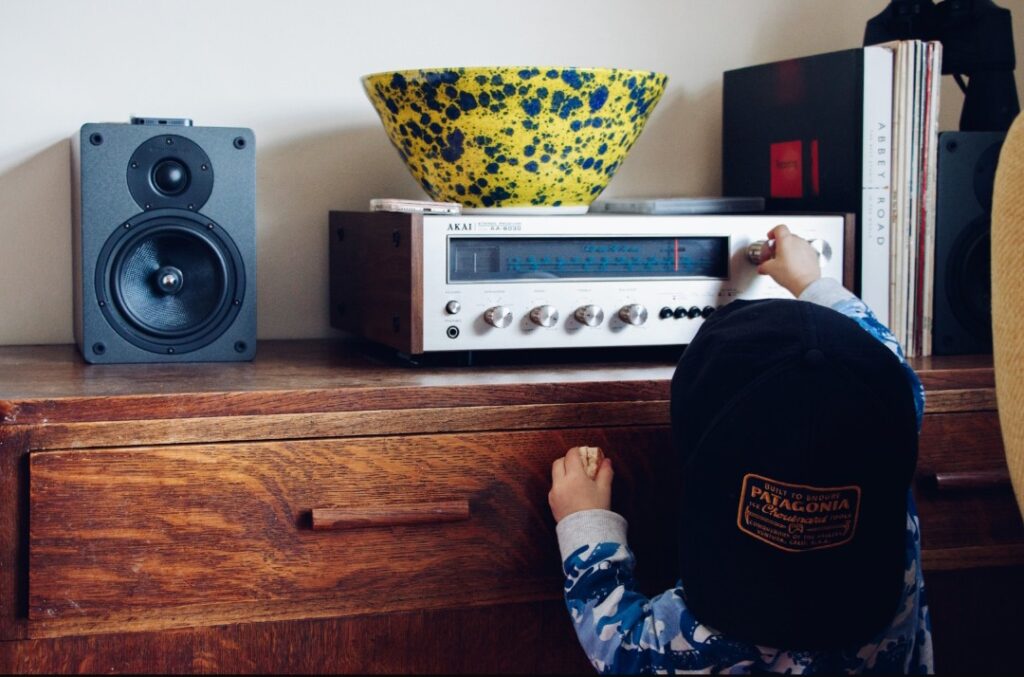Sensitivities to sound is a hallmark of autism but some parents find their autistic child likes loud noises.
We look into that phenomenon and see if we can work out what may be behind it.
Why may a child with autism like loud noises?
Autism can be a right puzzle for parents like us. The second you have got your heads around the disorder it can throw up a new surprise.
Take the way some children are inexplicably drawn to loud noises.
While this may seem bizarre at first, there are some profound reasons behind this attraction.
Sensory Processing
Autistic children often experience the world through heightened or altered sensory perceptions.
Loud noises, which might be overwhelming or even distressing to others, can sometimes provide a sense of comfort.
For some autistic children, the predictability and repetitiveness of certain loud sounds can appeal.
They can provide a structured and soothing sensory experience.
Imagine how an autistic child might find solace in the rhythmic thumping of music or the consistent hum of a vacuum cleaner.
When you really think about noises, they are actually vibrations. So a repetitive vibration can give sensory feedback which is pleasurable.
These noises, while loud to many, can create a sensory haven for children with autism.

Regulation
Loud noises can serve as a tool for emotional regulation for some autistic children.
When they feel overwhelmed or anxious, the sensory input of a loud noise may help them regain control.
It’s as if these sounds act as a soothing anchor in a sea of sensory information that can otherwise be disorienting.
Parents often witness how their child’s fascination with loud noises can bring comfort during moments of distress.
This coping mechanism is their way of finding stability and managing emotions.
Seeking stimulation
Children with autism may have different thresholds for sensory stimulation compared to neurotypical individuals.
Some autistic children seek out strong sensory experiences to fulfill their sensory needs.
Loud noises can provide this intense stimulation, helping them feel more connected to their environment.
It’s important to remember that what may seem like an excessive fascination with loud noises is.
In reality, a search for sensory input that makes them feel more grounded and in control.
Escape from social pressures
Autistic children frequently encounter social situations that they find uncomfortable.
These situations may require them to communicate and interact in ways that might not come naturally to them.
These interactions can be mentally and emotionally exhausting.
Loud noises, surprisingly, offer a brief respite from these demands.
When surrounded by loud noises, autistic children may feel that they don’t need to engage in conversations or follow social cues.
This grants them a temporary break from the often overwhelming world of social expectations.
Expression and enjoyment
Something like loud music can appeal to autistic children for very simple reasons.
Music has a universal appeal that transcends boundaries and brings joy to people of all ages and backgrounds.
For autistic children, in particular, the enjoyment of music, especially when it’s loud, can be a source of immense pleasure and comfort.
So put simply something like loud music can just be a personal preference.
What about hypersensitivity and hyposensitivity?
Hypersensitivity and hyposensitivity are two contrasting sensory profiles commonly observed in autistic children.
Starting with hypersensitivity, this involves heightened sensitivity to sensory input such as sounds, textures, or lights.
For hypersensitive children even mildly intense sensations can be overwhelming or distressing.
This can lead to behaviours such as covering their ears.
In contrast, hyposensitivity manifests as reduced sensitivity to sensory input.
These children require more intense input to elicit a response.
Autistic children with hyposensitivity may seek out sensory stimulation, including loud noises or strong tactile sensations.
Summary – Autistic child likes loud noises
We often say on this site that no two autistic children are the same.
This variation is emphasised by the different reactions to loud noises.
While a great number of autistic children find loud noises uncomfortable, it is not uncommon for an autistic child who likes loud noises.
Understanding why autistic children may be drawn to loud noises is a crucial step in supporting them.
These children experience the world in a way that’s fundamentally different from others.
Their attraction to loud sounds is a reflection of their individual sensory needs and emotional experiences.
Loud noises can in fact be an unexpected refuge from the social pressures they face.

